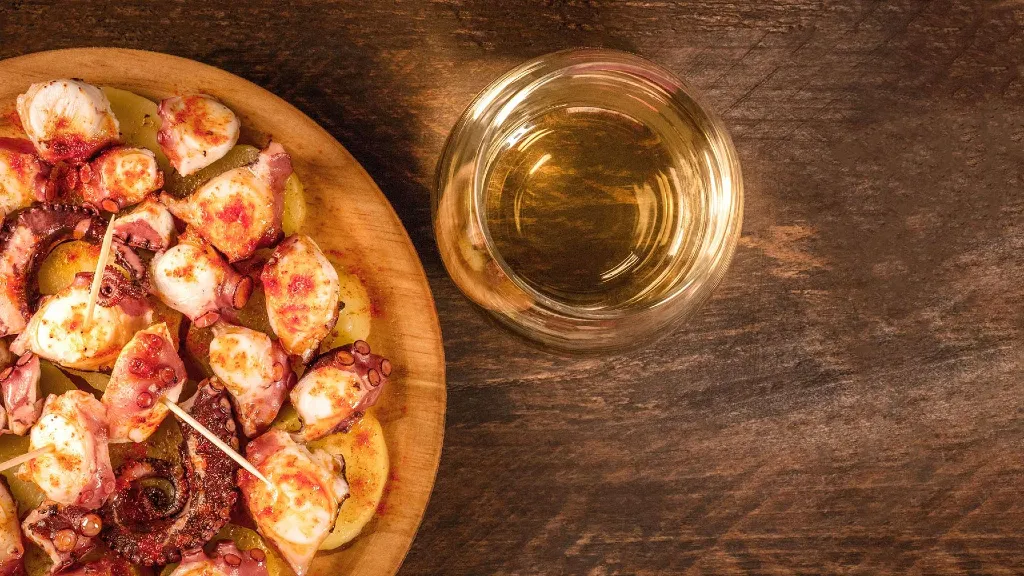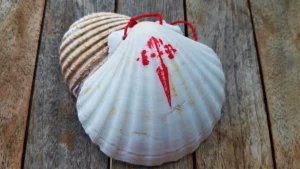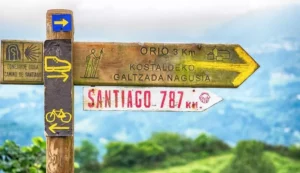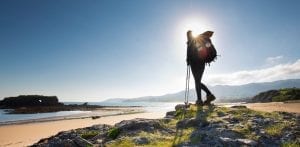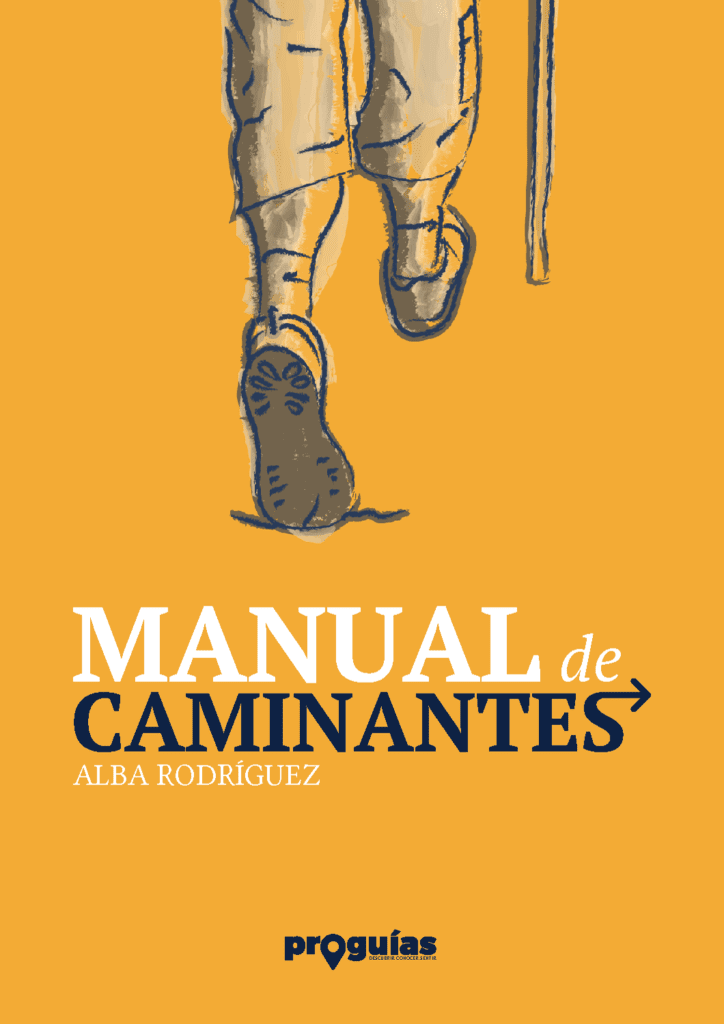Taking care of food on the Camino de Santiago is essential to have an unbeatable experience. However, in general, little attention is paid to it. On the Handbook of Pilgrims We have included some references to it, but today we would like to dedicate a specific article to it, so that we can go into it in more depth. Especially because, in addition to taking care of it, it is important to enjoy it.
The most important meal of the day
Medicine says it and our mothers say it: the most important meal of the day is breakfast. And for those who walk the Camino de Santiago it is even more so. In our societies there are people who have big breakfasts, but more often than not we live with little time and breakfast is reduced to a quick coffee. Many people don't even eat breakfast.
We know that this is not good on a day-to-day basis, but on the Camino, it just doesn't work. After all, the day will have prepared a good physical challenge, and it is essential to have energy. Without breakfast, or with a poor breakfast, we are more likely to run out of energy before the end of the stage.
Most accommodation on the Camino de Santiago are aware of this and give breakfast the importance it deserves. For this reason, both hostels and guesthouses and hotels usually offer what is known as a "reinforced breakfast", in the establishment itself or nearby. Generally, this means a certain amount and variety of food to choose from. Most commonly, in fact, we find buffets so that we can configure our breakfast to suit our needs.
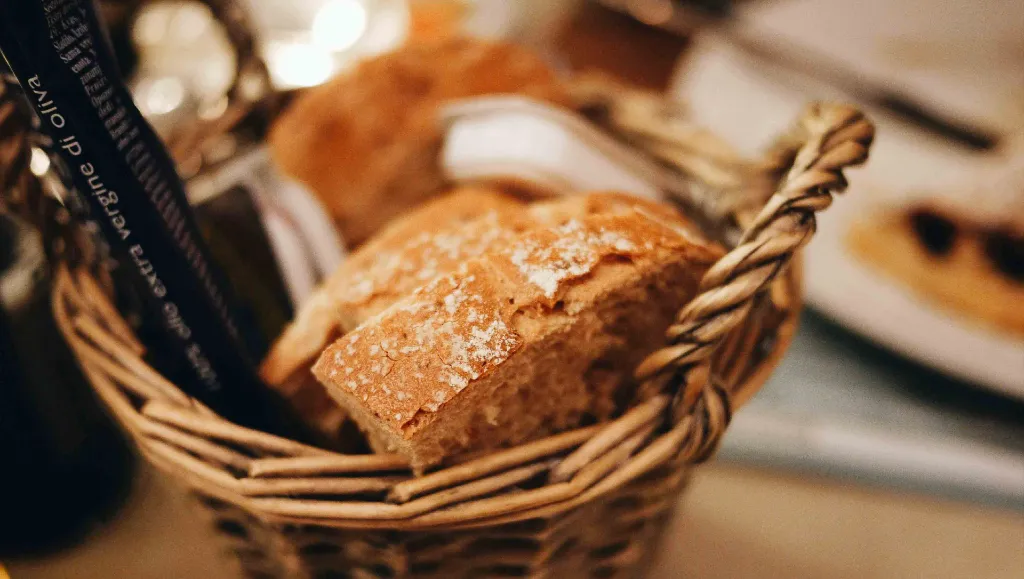
A word of warning: these establishments usually have a specific timetable for serving breakfast, so it's important to ask the night before what time the service starts, to make sure you can get something to eat before starting the stage. They do not usually serve breakfast before 7:30 am, which can be a problem for those who want to start walking very early. Bear in mind that meal times in Spain are a little different - breakfast, lunch and dinner tend to be later than in other neighbouring countries.
It is also possible that the accommodation does not offer breakfast, especially in hostels. In these cases, there will always be a nearby café where you can have breakfast. Or a grocery shop where you can make a quick purchase. Some pilgrims prefer, in fact, to walk a few kilometres before stopping for breakfast. In any case, it is important to avoid long distances without eating any food.
Now the question is, what should an adequate breakfast for the pilgrimage contain? Taking into account the physical effort that we will have to make, it is clear that a coffee or tea and a piece of toast will not be enough. However, it is not advisable to eat too much either, to avoid feeling heavy at the start of the stage. At the very least, you should make sure you have enough to eat, protein-rich foods (turkey, ham, and dairy products such as cheese or yoghurts), and natural sugars (fruit, jams with no added sugars and natural juices), but also carbohydrates (bread, toast and cereals) and some healthy fats (nuts or olive oil).
A good breakfast could be, for example, toast with olive oil and ham, some cheese and a piece of fruit or natural juice, accompanied by coffee. Or cereal with yoghurt, a piece of fruit and some nuts. Ideally, avoid industrial pastries, although many accommodations also offer homemade biscuits that are worth the effort.
Food on the Pilgrims' Route to Santiago: during the stage
It is also important to eat during the stage. As we have said, we are going to consume a lot of calories, and we will have to recover our strength, not only making stops to recover our muscles, but also taking advantage of them to hydrate ourselves (see below about hydration and what we should drink) and eat something. Along the Camino you will find a multitude of places where you can make these stops to regain strength, from cafes and bars to rest areas and picnic areas.
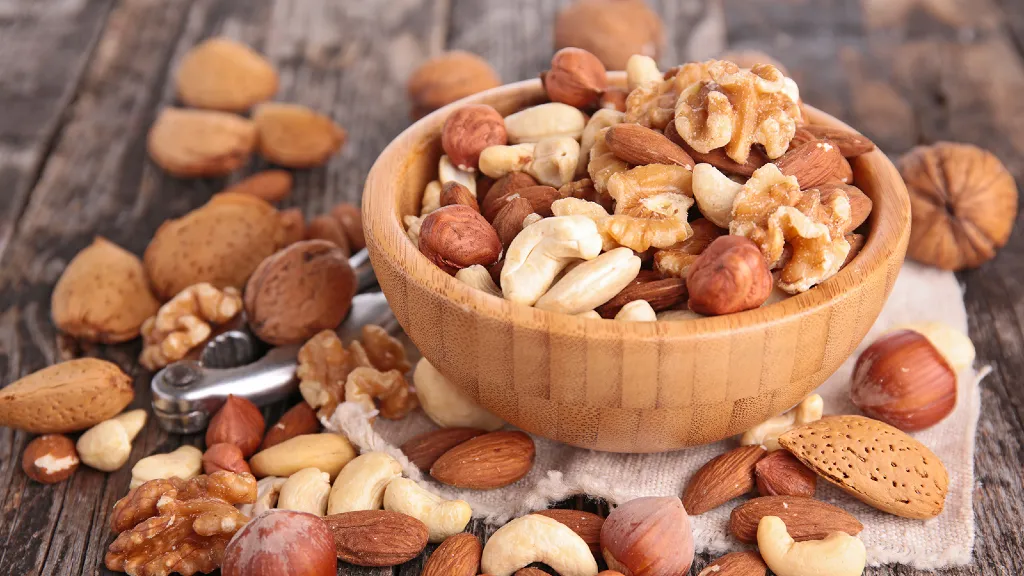
Nuts are king here, because they are easy to carry in your backpack and do not take up too much space or weigh too much. Almonds, cashews, walnuts, peanuts or pistachios are sold in most of the food shops you'll find on the Camino. But it is important to make sure they are raw or roasted, and never in the fried or sweet versions that you will also find.
Cereal and muesli-based energy bars are also a great option, as they contain carbohydrates that will give us a good dose of energy. Another alternative is fresh fruit, which provides a good dose of natural sugars that our body can easily convert into energy. Finally, there is also the option of chocolate. Although it is not the most recommended alternative, it can work if consumption is moderate and it is not too hot, as it tends to melt.
Lunch: end of stage or before continuing.
Most people who do the Camino de Santiago do stages of 20-30 km on foot (about 50-70 by bicycle), so that they finish the stage after midday. As we have already said that, in general, people eat late in Spain, the end of the stage usually coincides with open kitchens and a magnificent gastronomic offer. If we have already finished the journey, soaking up the gastronomic offer of each locality is one of the greatest pleasures of the Camino de Santiago.
But it may also happen that we have not yet reached the goal of the day, so we will have to adapt to the circumstances: if we still have to continue the Camino, a light lunch is preferable, leaving the heavier dishes to be enjoyed at dinner, which will eventually become the main meal of the day.
As we advance along the Camino, we will see that most restaurants offer the so-called "pilgrim menu", which is a very economical option: generally between 10 and 12 euros per person. The pilgrim menu usually consists of a first course, a main course and dessert or coffee, with options to choose from. The quality and variety of the dishes varies greatly from one restaurant to another, so it is worth having a look before deciding on one.
If you are one of those people who love gastronomy, you may find this pilgrim menu limited and repetitive. Therefore, sometimes it is better to order a single dish from the menu - especially if you are going to continue walking or cycling - or a speciality of the house.
Keep in mind that the Camino de Santiago crosses very diverse regions, and that gastronomy is one of its main cultural attractions, so opting for local and seasonal products will always be a highly recommended option.
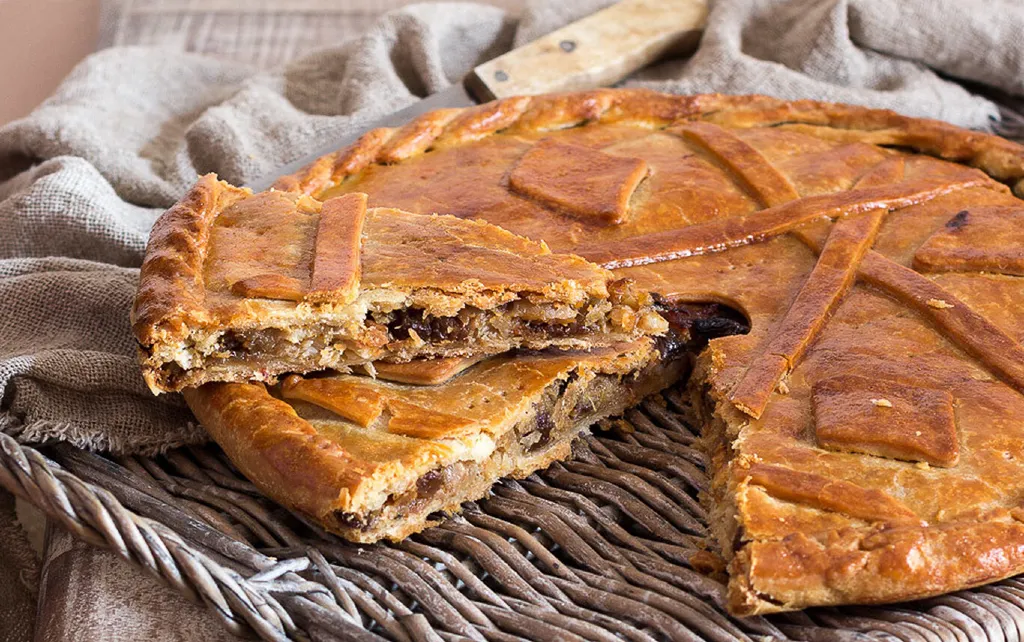
Dinner: a time to enjoy
As we have said, it is common that, during the Camino de Santiago, dinner becomes the main meal of the day. There are good reasons for this: we are more rested, we do not have to worry about continuing walking or cycling afterwards and, in addition, we have more time, which usually translates into long meals with other people who, like us, are doing the Camino de Santiago. Gastronomy is then accompanied by stories and anecdotes. Especially in the hostels, as many offer the possibility of a collective dinner among all the people who will spend the night there.
Beyond this, it is the perfect time to try most of the popular and traditional dishes of the area. Vegetables from Navarre, pil pil cod from the Basque Country, vine shoot chops from La Rioja, Castilian garlic soups, Zamorano-style rice, Asturian fabada, octopus, etc. á feira of Galicia, the bacalhau à brás Portuguese, etc. These are just a few references of a much deeper and varied offer. The truth is that all the areas crossed by the different routes of the Camino de Santiago have their own gastronomy, but the north of the peninsula has a well-deserved reputation.
The same goes for wines, beer and other alcoholic beverages, which are not recommended during the stage (due to the dehydrating properties of alcohol), but which, with dinner, are an added incentive to complement the experience.
Again, the opening hours can be controversial. In Spain it is very rare to dine before 21:00, and many restaurants do not open their doors until 20:00, so for many people coming from other countries, it is late. Especially when you have to get up early the next day.
Handbook of Pilgrims
Download the most complete guide to prepare the Camino de Santiago from scratch and step by step.
Taking care of your hydration during the Camino de Santiago
Finally, we want to insist that, during the Camino de Santiago, it is essential to stay hydrated. During the stage we will sweat and lose fluids quickly, so it is important to replenish them too. We must do it even if we do not feel thirsty, in small amounts at a time.
As regards liquids, it is becoming increasingly common to resort to energy drinks (hypertonic)Although they may contain substances that are problematic for some people (such as caffeine or taurine), they do have a fatigue-fighting effect, which is not the same as fighting the causes. The truth is that these drinks have the effect of combating the feeling of fatigue, which is not the same as combating the causes. It is therefore preferable to consume rehydration drinks (isotonic or even slightly hypotonic), whose purpose is to favour the absorption of water and which usually contain substances such as minerals, magnesium, amino acids, slow-assimilation carbohydrates and vitamins. Not forgetting water, which will be the most readily available option, both bottled and from springs and fountains that you will find along the way.


